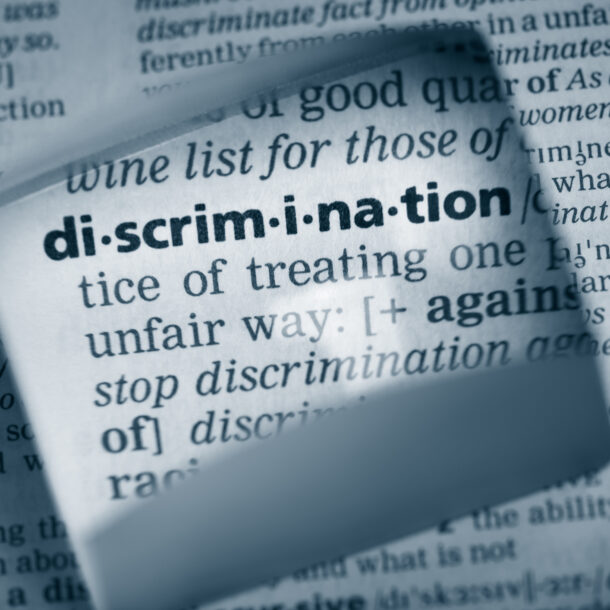
Stay
UpdateD
Join the BPC
Email List
Stay up to date on exciting projects and upcoming events from the Black Promoters Collective.
Those hoping to leave drama in 2024 will be disappointed to know that the legal battle between Blake Lively and her It Ends With Us co-star Justin Baldoni is building up into the new year. Nearly five months after the controversial Colleen Hoover adaptation hit theaters (scoring an impressive $50 million debut at the box office), the actors remain at odds. During the premiere, fans quickly noticed apparent tension between Baldoni and his collaborators, as the director/lead actor failed to pose for photos with Lively and other cast members or participate in many group interviews.
Although they denied any issues at the time, social media users were unsure whose side to take; some disapproved of Lively’s seemingly flippant promotional tactics for a movie covering such heavy subject matter while others refused to believe the gossip. To offset any rumors, Baldoni sang his collaborator’s praises in an interview back in August. “She’s dynamic, creative. She had her hands in every part of this production and everything she touched, she made better,” he gushed at the time while praising Lively’s husband, Ryan Reynolds, too. In hindsight, these comments are raising eyebrows after a lawsuit against Baldoni accused him of sexually harassing Lively while filming It Ends With Us.

Before things escalated earlier this week, Blake Lively filed a complaint with the California Civil Rights Department against Justin Baldoni and others she worked with on the project. As Variety notes, this leaves the state agency with the option to launch its own investigation or issue a “right to sue” allowing plaintiffs to file in civil court. The government organization refused to comment on the case, telling the outlet, “To protect its integrity, we’re unable to comment on, even to confirm or deny, a potential or ongoing investigation.”
In her complaint, Lively accuses Baldoni and production company Wayfarer Studios of developing a “carefully crafted, coordinated, and resourced retaliatory scheme to silence her, and others, from speaking out.” This reportedly involved a “multi-tiered plan” to tarnish the starlet’s reputation following a meeting during which she and Reynolds addressed “repeated sexual harassment and other disturbing behavior” by the It Ends With Us director and producer Jamey Heath.
In particular, Lively alleges Baldoni made inappropriate comments about the bodies of numerous women on set. He and Heath, who’s named in both lawsuits, reportedly “discussed their personal sexual experiences and previous porn addiction, and tried to pressure Ms Lively to reveal details about her intimate life.” After she and Reynolds set boundaries, industry insiders plotted to plant theories online, engineering an unflattering campaign against the blonde beauty, her complaint states.
Another figure named in both lawsuits is crisis communications expert Melissa Nathan, whose alleged texts about being able to “bury anyone” were revealed in a New York Times story on Dec. 22 – around the same time as Blake Lively’s civil suit. Per Variety, messages like the ones exposed “typically would never see the light of day – or, if they did, it would only be after years of litigation and discovery.” Knowing this, people keeping up with the drama are curious how the mother of four and her team got them in the right hands so quickly.
In their filing, Lively’s lawyers explained she, “obtained the communications outlined in this Complaint through legal process, including a civil subpoena” reportedly sent to Joneswork LLC founder Stephanie Jones. The declining PR firm worked closely with Baldoni through the gossip surrounding It Ends With Us, bringing on Nathan (founder of Tag PR) to help him strategize and preserve his image. Jones is not mentioned in Lively’s lawsuit, though Nathan’s name appears 88 times. The industry expert’s company is backed by Scooter Braun with clients like Drake and Travis Scott, suggesting she knows how to clean up celebrity messes with confidence.
As fate would have it, Jones found out one of her publicists working with Baldoni, Jen Abel, was hoping to launch a PR firm of her own, leading the former to fire the latter. Abel’s phone was relinquished, and when Joneswork was subpoenaed by Lively’s legal team, the founder turned the device over as requested, uncovering messages about the alleged smear campaign. Bryan Freedman is representing Baldoni and his Wayfarer Studios company along with Abel and Nathan; he’s threatened legal action against Jones, noting that none of his clients were subpoenaed.
“If all of the text messages were produced in that ‘subpoena,’ then Lively’s team knows the true facts of what actually happened and did not happen,” Freedman said in a statement. “The truth is completely different than what has been portrayed in the complaint and they know that. The complete set of text messages unequivocally show that there was no smear campaign initiated at all which is why certain texts are incomplete and other texts, which tell the truth, are purposefully excluded.”

In light of the NYT story and initial lawsuit, Baldoni was dropped by his agency, WME, which represents both Lively and Reynolds. Despite this, Freedman maintains the allegations against his client are “completely false, outrageous and intentionally salacious.” The celebrity attorney added, “The New York Times cowered to the wants and whims of two powerful ‘untouchable’ Hollywood elites. “In doing so, they pre-determined the outcome of their story, and aided and abetted their own devastating PR smear campaign designed to revitalize Lively’s self-induced floundering public image and counter the organic groundswell of criticism amongst the online public. The irony is rich.”
Hours before the fashionista sued him, the actor and other defendants sued the NYT for libel in the Los Angeles superior court, arguing that the outlet “relied almost entirely on Lively’s unverified and self-serving narrative, lifting it nearly verbatim while disregarding an abundance of evidence that contradicted her claims and exposed her true motives.” The Guardian notes Freedman is seeking $250 million in damages, but the publication stands behind its reporting and plans to vigorously defend itself in court.
NY Times spokesperson Danielle Rhoades issued a statement: “Our story was meticulously and responsibly reported. It was based on a review of thousands of pages of original documents, including the text messages and emails that we quote accurately and at length in the article. To date, Wayfarer Studios, Mr. Baldoni, the other subjects of the article and their representatives have not pointed to a single error.” The libel suit argues, “If the Times truly reviewed the thousands of private communications it claimed to have obtained, its reporters would have seen incontrovertible evidence that it was Lively, not Plaintiffs, who engaged in a calculated smear campaign.”
It’s worth noting that Lively isn’t a defendant in the libel suit. “Nothing in this lawsuit changes anything about the claims advanced in Ms. Lively’s California civil rights department complaint, nor her federal complaint, filed earlier today,” her lawyers said in response to the latest from Baldoni.
Stay up to date on exciting projects and upcoming events from the Black Promoters Collective.

©2024 Black Promoters Collective (BPC) All Rights Reserved.